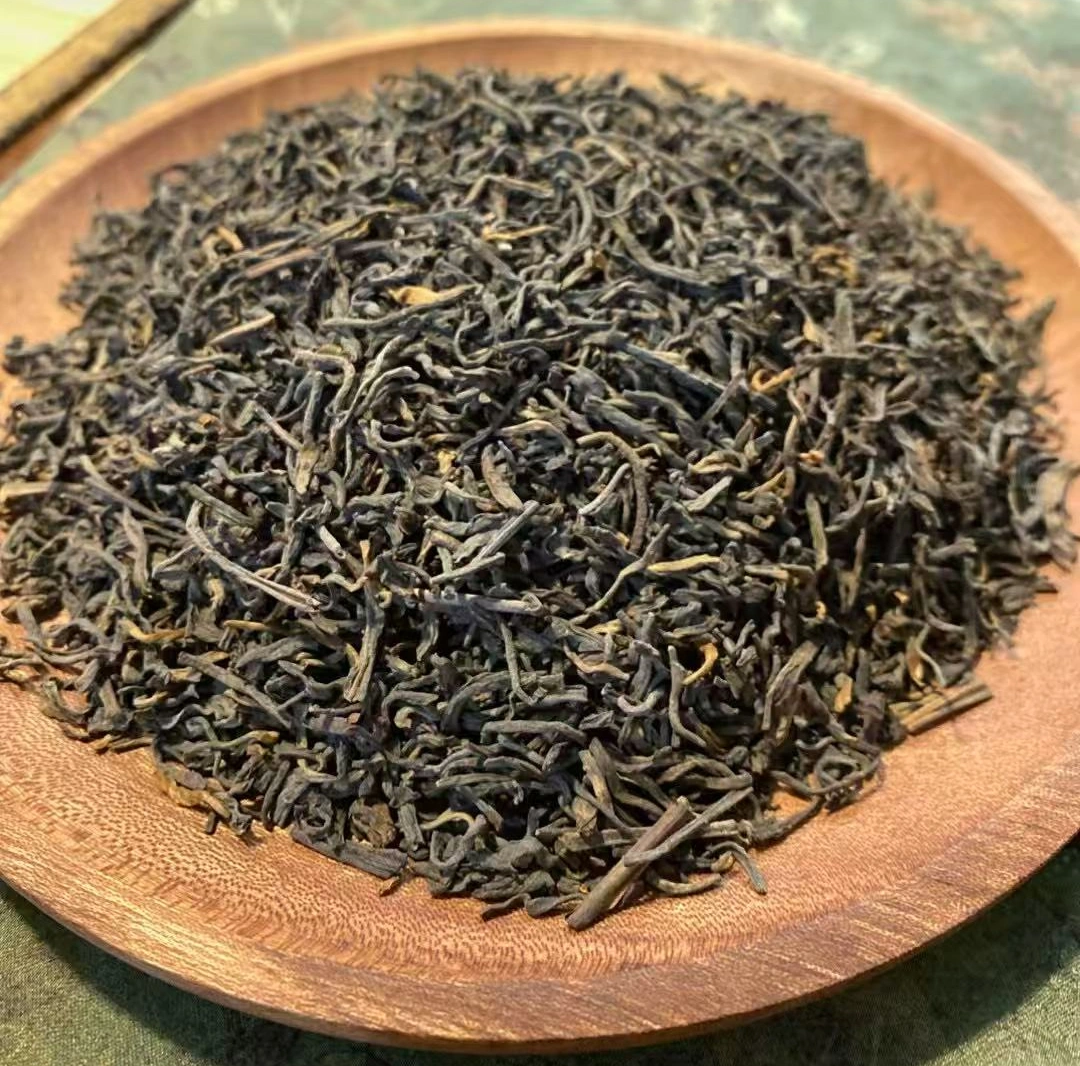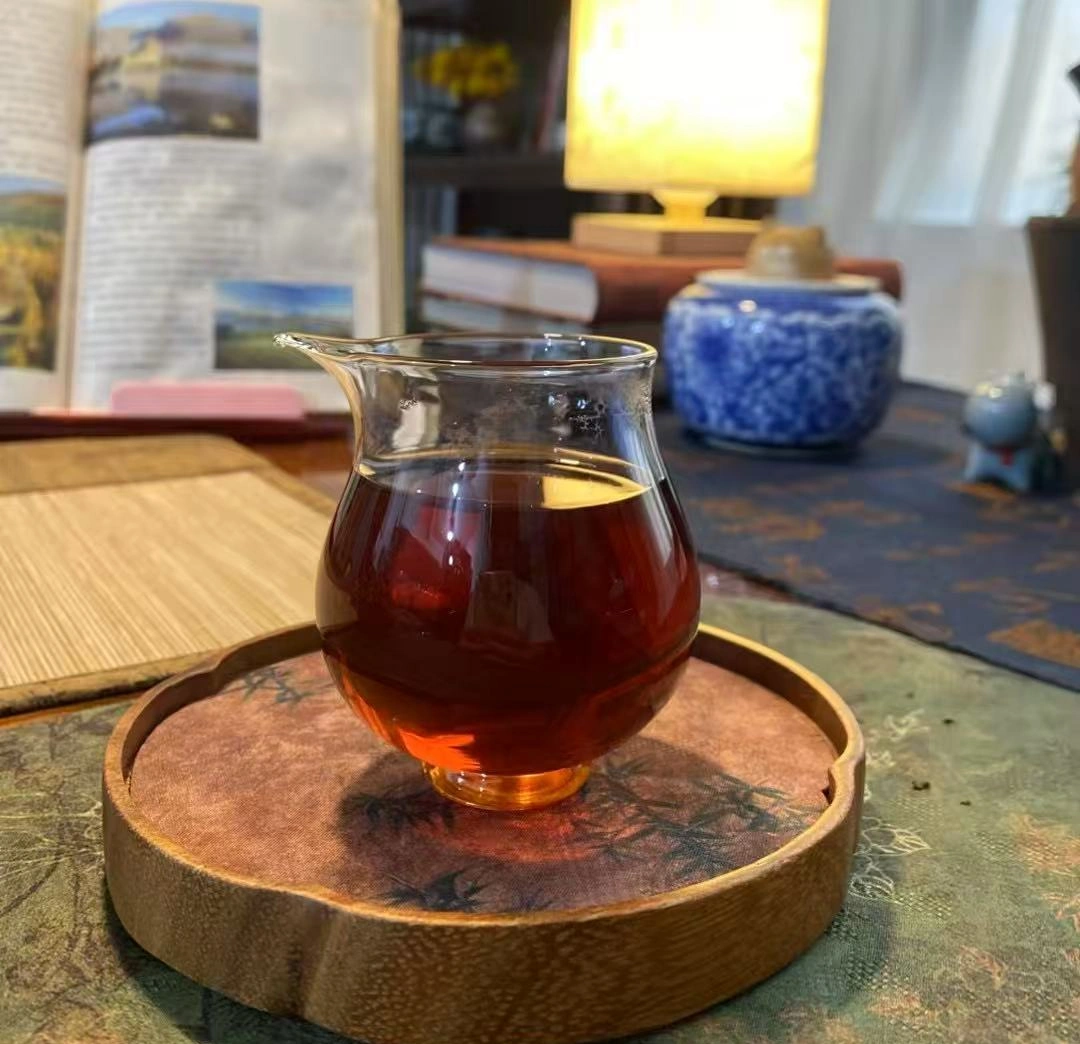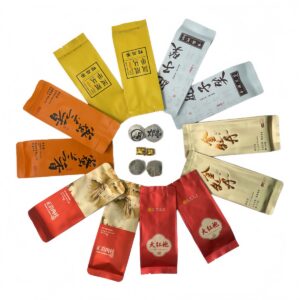Loose leaf dark tea captivates the senses from the very first moment: the deep, mahogany liquor swirling in your cup, the toasty, earthy aroma rising in gentle plumes, and the promise of mellow sweetness balanced by a hint of aged complexity. Whether you’re seeking a comforting morning ritual or a mindful evening unwind, loose leaf dark tea offers a journey through centuries-old fermentation traditions and nourishing wellness benefits.
In this guide, we’ll dive into the art and science of loose leaf dark tea—from its unique production and prized varietals like Liubao tea and aged dark tea, to expert brewing techniques and daily rituals that elevate both body and soul.
What Is Loose Leaf Dark Tea?
Loose leaf dark tea belongs to the post-fermented category of teas, known in China as Hei Cha. After primary processing, the leaves undergo a second, microbial fermentation under controlled humidity and temperature. This aging process transforms fresh tea into deep-flavored gems: flavors of damp forest floor, molasses, and subtle caramel emerge, while beneficial polyphenols mature into gentle, gut-friendly compounds. Unlike bagged teas, loose leaves retain their full structure and essential oils, delivering richer flavor, smoother mouthfeel, and multiple infusions.

Origins & Key Varietals of Dark Tea
Liubao Tea
Hailing from Guangxi province, Liubao tea is famed for its rustic charm. Rolled into tight nuggets, these leaves develop woody, honeyed notes and a soft, lingering sweetness. Liubao’s floral undertones and gentle fermentation make it a daily wellness companion, prized for digestive harmony and calming warmth.
Aged Dark Tea
Aged dark tea, including cellar-aged Pu-erh and classic Hei Cha bricks, reveals deeper complexity with time. Months or even years of storage allow microbial cultures to enhance the tea’s smoothness, reduce bitterness, and amplify earthy, autumnal aromas. Each vintage year brings new nuances—like buds of autumn spice or late-harvest fruit.
Other Notable Dark Teas
- Fu Brick Tea: Compressed into dense cakes, this Hunan specialty offers chocolate-brown liquors with a velvety texture.
- Anhua Brick Tea: From Hunan’s misty mountains, its bold, smoky profile pairs perfectly with hearty snacks.
Health Benefits of Loose Leaf Dark Tea
Digestive Support & Gut Health
One of the most celebrated loose leaf dark tea benefits is its gentle prebiotic action. Fermented compounds nourish beneficial gut bacteria, helping to:
- Soothe occasional bloating
- Promote balanced digestion
- Support nutrient absorption
A post-meal cup of dark tea feels like a warm embrace for your digestive system, easing discomfort and fostering regularity.
Antioxidant & Anti-Inflammatory Effects
Dark tea’s rich theaflavins and thearubigins act as potent antioxidants, scavenging free radicals and:
- Reducing systemic inflammation
- Protecting cardiovascular health
- Supporting skin vitality
Sip your tea mindfully, knowing each drop carries microscopic guardians against oxidative stress.
Metabolism Boost & Weight Management
Caffeine and unique polyphenols in loose leaf dark tea can gently stimulate your metabolism:
- Enhancing energy expenditure
- Promoting fat oxidation
- Stabilizing blood sugar levels
Enjoying dark tea between meals or before exercise adds a smooth, sustained lift without the jitters of coffee.
Liver & Detox Support
Fermented dark teas support the liver’s natural detox pathways by:
- Stimulating bile flow for efficient fat processing
- Offering anti-inflammatory protection to liver cells
Consistent daily ritual may translate into clearer skin, improved energy, and a refreshed sense of well-being.
How to Choose High-Quality Loose Leaf Dark Tea
Selecting exceptional loose leaf dark tea ensures every cup delights:
- Appearance: Look for uniform, glossy leaves or tightly rolled nuggets with few stems.
- Aroma: Dry leaves should exude warm, earthy notes—think damp wood, roasted nuts, or aged honey.
- Origin Labels & Age Statements: Seek single-origin teas and clear storage dates; older vintages often command richer profiles.
- Storage Tips: Keep tea in airtight, light-blocking containers at stable, cool temperatures to preserve nuanced flavors.
Brewing Loose Leaf Dark Tea for Maximum Flavor
Water Temperature & Steep Times
- Western-Style: Heat water to 95–100 °C (203–212 °F). Use 5 g (1 tsp) per 240 ml water. Steep 3–5 minutes for a full-bodied cup.
- Gongfu-Style: In a small teapot or gaiwan, use high leaf ratios (1 g per 20 ml). Rinse leaves rapidly, then steep 15–30 seconds for each of 6–8 infusions.
Multi-Steep Techniques with Aged Dark Tea
Aged varieties reveal new layers with each steep. Gradually extend infusion times by 5–10 seconds after the third steep to draw out deeper caramel and autumn spice notes.
🔗 For more tea brewing methods, check out the YouTube video explaining the brewing methods.

Incorporating Loose Leaf Dark Tea into Your Routine
- Morning Ritual: Kick-start your day with a smooth Yunnan or Liubao brew—waking your senses while aligning your gut.
- After-Meal Harmony: A gentle cup post-lunch aids digestion and stabilizes energy.
- Afternoon Reset: Replace sugary snacks with dark tea’s clean lift—pair with nuts or dark chocolate for a satisfying treat.
- Cold Brew & Iced Variations: Steep 10 g leaves per liter cold water for 8–12 hours; strain and serve over ice with citrus slices for a refreshing twist.
FAQs About Loose Leaf Dark Tea
How many grams per cup?
5 g (1 tsp) per 240 ml water is standard; adjust slightly to taste.
How does aging affect taste?
Extended fermentation mellows tannins, deepens earthiness, and introduces subtle spice or fruit undertones over time.
Can I drink dark tea daily?
Yes—2–4 cups daily can support digestion, metabolism, and liver health without overstimulation.
Conclusion: Embrace Loose Leaf Dark Tea
From the mossy hills of Guangxi to the time-worn cellars of Yunnan, loose leaf dark tea unites flavor, tradition, and wellness in every cup. Whether you crave the honeyed warmth of Liubao tea or the contemplative depth of an aged dark tea, let each sip guide you toward mindful calm and holistic vitality. Steep, savor, and celebrate your daily dark tea ritual—your body and spirit will thank you.



